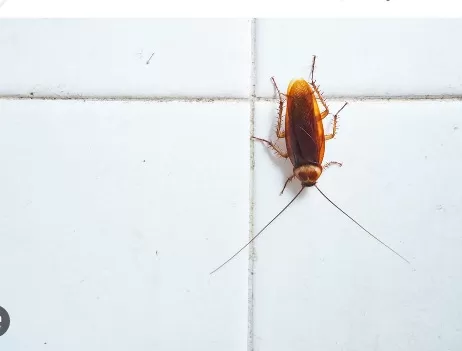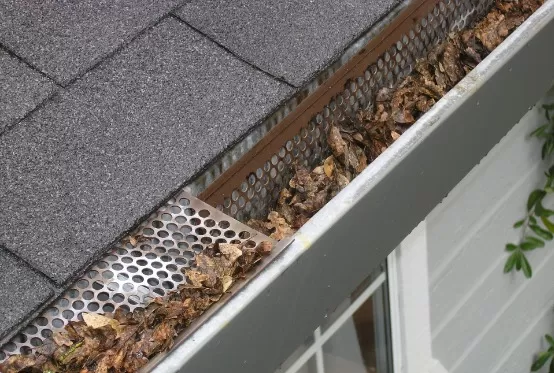Bug and Rodent Magnets: 5 Things in Your House to Address. Every pest problem has an underlying cause that needs to be addressed. It’s important to identify the factors that may be attracting pests to your home and take preventive measures to keep them at bay. By understanding these causes and implementing effective pest control strategies, you can prevent pests from infiltrating your living space.
Some common factors that contribute to infestations include poor sanitation practices, such as leaving food out in the open or not properly storing trash. Clutter and debris can also provide hiding spots and breeding grounds for pests. Additionally, cracks and openings in walls, floors, and windows serve as entry points for pests to enter your home.
To prevent pests, it’s essential to maintain a clean and tidy living environment. Regularly clean your home, including floors, countertops, and storage areas, to eliminate potential food sources. Properly dispose of garbage in sealed containers and keep outdoor areas free from debris.
Sealing any gaps or cracks in your home’s structure will help prevent pests from finding their way inside. Repairing damaged screens and installing door sweeps will further minimize the likelihood of pests entering your home.
In cases where a pest infestation has already occurred, it’s best to seek professional assistance from pest control experts. They can identify the specific cause of the infestation and implement targeted treatments to eradicate pests and prevent future problems.
By addressing the underlying factors that attract pests and implementing preventive measures, you can effectively keep pests from invading your home and ensure a pest-free living environment.
Prevent Pest Problems: Save Money and Frustration

Just like humans, pests are drawn to easy meals, accessible water sources, and comfortable nesting spots.
Unfortunately, our homes often provide all of these. Neglected repairs and inadequate maintenance create an open invitation for bugs and rodents to invade.
Once they’ve infiltrated, it doesn’t take much to entice pests to stay, and in the United States alone, insects cause over $5 billion in damages every year.
Save yourself the expense and trouble of dealing with pest damage by taking preventive measures from the start.
Protect Your Basement: Keep It Dry and Pest-Free
A wet basement is not just a minor inconvenience; it can invite a host of pests, from insects and rodents to snakes and other unwelcome creatures.
Additionally, the presence of water in your basement can increase humidity levels, leading to potential structural damage caused by termites and fungus.
To ensure a dry basement, take the following measures.
First, check the grading and downspouts around your house to ensure that rainwater drains away from the foundation instead of towards it. Also, promptly address any other potential sources of leaks, such as windows and sump pumps, as soon as issues arise.
By taking these preventive steps, you can safeguard your basement against Water Damage and keep pests at bay.
Prevent Clogged Gutters: Keep Pests Away

When rain gutters become clogged, moisture accumulates near the roofline, posing structural risks.
Moreover, clogged gutters create a breeding ground for insects and snakes.
To discourage the congregation of bugs and creatures in your gutters, it’s essential to clean them out in the spring and after leaves have fallen in the autumn.
Additionally, consider installing gutter guards as a preventive measure. By taking these steps, you can maintain clean and functioning gutters, keeping pests at bay and safeguarding your home’s structure.
Combat High Humidity: Keep Insects at Bay
Humid environments are magnets for bothersome insects like cockroaches and silverfish.
Leaky pipes, sluggish drains, and poorly vented bathrooms create perfect conditions for these pests to thrive. Swiftly address any necessary repairs in these problem areas, and consider using a dehumidifier to regulate moisture levels. Failure to do so may result in an unwelcome infestation of creepy crawlies. Stay proactive in controlling humidity to keep insects away and maintain a pest-free home.
Manage Trash and Recyclables: Prevent Pest Infestations

Unsurprisingly, food scraps in trash cans act as a magnet for bugs and rodents.
To prevent infestations, it’s crucial to properly bag and seal garbage, storing it in closed containers. Additionally, remember to rinse out recyclables and the recycle bin itself.
Consider upgrading from an open-top curbside recycling container to one with a lid for added protection against pests. By implementing these practices, you can effectively manage your trash and recyclables, minimizing the risk of pest-related issues.
*The information is for reference only.